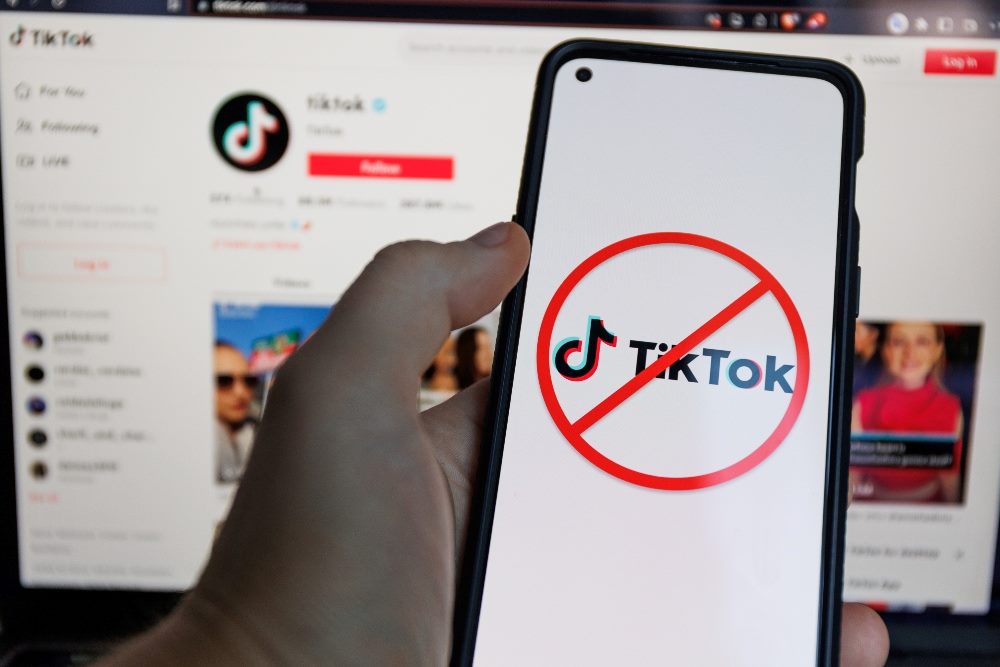The Gist
- Legislative impact. H.R. 815 mandates ByteDance to divest ownership, reshaping U.S. social media landscape.
- Influencer readiness. Influencers must diversify platforms within a year, promoting resilience and adaptability.
- Legal scrutiny ahead. TikTok challenges H.R. 815's constitutionality, raising debates on legal and data privacy.
The other shoe has dropped. H.R. 815, a foreign aid bill for Israel, Ukraine and Taiwan, has been passed and signed into law. The legislation includes two sections: the Protecting Americans from Foreign Adversary Controlled Applications Act and the Protecting Americans’ Data from 2024, which will require ByteDance, the tech firm that owns TikTok, to divest its ownership, effectively leading to a TikTok ban.

I recently discussed in a previous post how a TikTok ban would affect marketers. H.R. 815 has impacts similar to those that emerged from the debate on the earlier Protecting Americans from Foreign Adversary Controlled Applications Act. That act passed the House last month but stalled in the Senate. The H.R. 815 legislation reinforces some of those instances and introduces several additional implications.

Related Article: What a TikTok Ban Means for Marketers
What Gets Introduced in the Legislation?
H.R. 815 aims to solidify the definition of foreign-owned applications and software providers that constitute a security threat. Violating companies are defined as organizations with at least 20% of their ownership controlled by a U.S. foreign adversary. Platforms hosting apps and software from a violating company also face liability.
Time to Adjust
H.R. 815 gives violating platforms time to adjust. App stores must remove these apps from their offerings. Violating companies have nine months to divest and sell to a non-foreign controlled entity. The fine for non-compliance is $5,000 per user who is a U.S. citizen.
ByteDance Divestiture
ByteDance effectively has a year to divest, starting from the date of the presidential signature. A 90-day extension is permissible if there is a qualified divestiture plan and a good-faith effort to divest has been made. The president ultimately determines what qualifies.
Related Article: Marketers Brace for Impact as Potential US TikTok Ban Looms
National Security Threat?
The segment of H.R. 815 that focuses on protecting citizens from national security threats reflects the longstanding argument from lawmakers and critics who view TikTok as a national security threat. They have argued that the Chinese government could force ByteDance to share data from American TikTok users. H.R. 815 includes provisions to prevent the transfer of personal data to foreign-based entities.
Related Article: Is It the 11th Hour for TikTok?
Unintended Consequences
However, parts of H.R. 815 may lead to unintended consequences in defining an app as a threat. Alexandra Damsker, a startup consultant and attorney, who thoroughly explained the bill details in a Twitter space. She highlighted how the bill provides no clarity on how significant a national security threat must be to trigger divestment, pointed out in a special Space examining the bill that it provides no clarity on how significant a national security threat must be to trigger divestment. Any accusation of national security threats necessitates closed congressional hearings. These hearings are not open to the public and do not permit the release of hearing transcripts for scrutiny. This could create a branding issue for platforms accused of violating the law — they can be accused but have limited means to defend their reputation as safe to use.
Related Article: Why Should the Potential TikTok Ban Matter to Marketers?
What Changes for Influencers and Marketers Who Use TikTok?
The clear stakeholders impacted are the influencers who use TikTok. Influencers will have a year to establish a presence on diverse social media platforms beyond TikTok. Major players like Instagram and YouTube have already launched features designed to support influencers on their platforms. This provides influencers with multiple options for audience development and monetization. It also offers marketers insights on how to evaluate influencers for partnerships in on-brand messaging. Marketers will seek influencers who choose platforms offering the best engagement opportunities.
Related Article: What Happens Next to TikTok?
A New Reality
Marketers are beginning to adjust to the new reality, but many believe that a platform exit for U.S. brands and influencers is not necessary at this moment, despite the passed legislation that overshadows TikTok's presence in the U.S.
Imminent TikTok Ban Emphasizes Importance of Diversifying
Rajsheda “Rocki” Griffin, a social media strategist who founded the Clubhouse community and social media consultancy "Social with Rocki," advises marketers to see this as a reminder of the importance of diversifying their use of social media platforms. “Never rely on one social media platform as your main source of income," she warns. "Anything can happen, and just like that, you're left without a platform.”
TikTok Ban Might Not Happen
Sara McCord, a PR expert and founder/CEO of McCord Communications, noted that immediately abandoning strategies would eliminate crucial learning opportunities for marketing.
“I run TikTok-first viral strategies,” McCord explains. “My most popular training is 'Go Viral on TikTok.' The biggest mistake creators, brands, and businesses could make is to abandon TikTok because it could be shuttered in a year. I advise to continue to build and grow on the platform (yes, I would even tell someone to start a brand new account tomorrow) because in 3 months, let alone 12 months on TikTok, you can change the trajectory of your entire brand…imagine the community and learnings you can bring after an additional 12 months on the platform as opposed to joining a crowd. And what if you leave — and it’s still here — today, tomorrow, 12 months, forever?”
Seek Legal Insights
Marketers should prepare for a legal debate. TikTok has vowed to challenge the constitutionality of the law. In the coming days, marketers should seek insights from legal experts on whether the law's parameters can withstand judicial scrutiny.
National security hearings will not address data privacy in the same way a national data privacy law would, which the U.S. still lacks. Consequently, many business legal issues regarding data usage will unfold.
